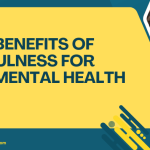Table of Contents
- What Are Psychosomatic Disorders?
- Common Symptoms of Psychosomatic Disorders
- The Connection Between Mind and Body
- Diagnosis and Treatment
- Coping Strategies and Support
Understanding psychosomatic disorders can feel like navigating a complex maze. In this article, we’ll break down everything you need to know about these fascinating yet often misunderstood conditions. Whether you’re seeking information for yourself or a loved one, these insights will provide clarity and guidance.
What Are Psychosomatic Disorders?
Psychosomatic disorders refer to physical symptoms that arise from psychological factors. In simpler terms, these are medical conditions where emotional or psychological stress manifests as physical ailments. For instance, someone might experience chronic pain, gastrointestinal issues, or fatigue that cannot be traced back to a specific medical condition.
The term “psychosomatic” itself combines the Greek words “psyche” (mind) and “soma” (body), highlighting the intricate connection between mental and physical health.
According to the American Psychological Association, psychosomatic disorders can significantly affect a person’s quality of life, making early recognition and treatment crucial.
Also Look For:
- Top 5 Reasons Neuro Care is Essential in Modern Medicine
- Neuro Care vs. Mental Health Care: Key Differences Explained
FAQs
- Can psychosomatic disorders be cured? While there may not be a “cure” in the traditional sense, many treatment options can alleviate symptoms and improve overall well-being.
- Are psychosomatic disorders real? Absolutely! The symptoms can be very real and often require both medical and psychological interventions.
Common Symptoms of Psychosomatic Disorders
Psychosomatic disorders can present a range of symptoms that mimic various physical health issues. Here are some common symptoms:
| Symptom | Description |
|---|---|
| Chronic pain | Persistent pain without a clear medical cause |
| Gastrointestinal issues | Symptoms like bloating, diarrhea, or constipation |
| Fatigue | Extreme tiredness that doesn’t improve with rest |
| Headaches | Frequent tension or migraine headaches |
| Skin conditions | Rashes or other skin issues that may have a psychological cause |
If medical tests are inconclusive and emotional stressors are present, it may indicate a psychosomatic disorder.
FAQs
- How do I know if my symptoms are psychosomatic?
If medical tests are inconclusive and emotional stressors are present, it may indicate a psychosomatic disorder. - Can stress really cause physical symptoms?
Yes, stress can trigger a variety of physical symptoms due to the body’s stress response.
The Connection Between Mind and Body
The link between mental and physical health is well-documented. Stress, anxiety, and depression can lead to measurable physiological changes. For example, chronic stress can increase cortisol levels, impacting systems like digestion and immune response.
Researchers have found that the brain and body communicate constantly through a network of hormones, neurotransmitters, and other signaling molecules. This means that emotional states can lead to physical changes, and vice versa. Understanding this connection is essential for treating psychosomatic disorders effectively.
For a deeper dive into mind-body connections, explore resources like the National Institutes of Health or the World Health Organization.
Also Look For:
FAQs
- Is it possible to have both psychosomatic and physical illnesses?
Yes, individuals can experience psychosomatic disorders alongside other physical health conditions. - How does the brain influence physical health?
The brain processes emotions and stress, affecting bodily functions like heart rate and digestion.
Diagnosis and Treatment
Diagnosing psychosomatic disorders can be challenging. Medical professionals typically start by ruling out any potential physical conditions through tests and examinations. Once physical causes are excluded, they may consider psychological evaluations.
Treatment Options
- Psychotherapy: Cognitive-behavioral therapy (CBT) is particularly effective in helping individuals identify stressors and develop coping strategies.
- Medication: In some cases, antidepressants or anti-anxiety medications may be prescribed to help manage symptoms.
- Stress Management Techniques: Mindfulness, yoga, and meditation can help reduce stress and improve overall well-being.
- Physical Therapy: Tailored physical exercises can alleviate symptoms and improve physical function.
Treatment duration varies based on individual circumstances but often requires ongoing therapy and support.
FAQs
- How long does treatment take?
Treatment duration varies based on individual circumstances but often requires ongoing therapy and support. - Can lifestyle changes help?
Absolutely! Healthy lifestyle choices, such as regular exercise and a balanced diet, can significantly enhance treatment outcomes.
Coping Strategies and Support
Living with psychosomatic disorders can be challenging, but there are effective coping strategies you can adopt:
- Practice Mindfulness: Engage in mindfulness exercises to help you stay grounded and reduce anxiety.
- Connect with Support Groups: Sharing experiences with others facing similar challenges can provide emotional relief and practical advice.
- Journaling: Writing about your feelings can help you process emotions and identify triggers.
- Seek Professional Help: Regular sessions with a mental health professional can guide you through your journey.
Many organizations offer support groups, both online and in-person. Websites like Mental Health America can help you find resources.
Also Look For:
- Top 5 Benefits of Regular Neuro Check-Ups for Your Health
- Top 5 Strategies for Coping with Chronic Neurological Conditions
FAQs
- Are there support groups for psychosomatic disorders?
Yes, many organizations offer support groups, both online and in-person. Websites like Mental Health America can help you find resources. - Is it okay to ask for help?
Absolutely! Seeking help is a sign of strength and an important step toward healing.
Understanding psychosomatic disorders is vital for anyone experiencing unexplained physical symptoms. By recognizing the intertwining nature of mind and body, we can pave the way for effective treatment and improved quality of life. If you or someone you know is struggling, remember that support and resources are available. Don’t hesitate to reach out!






